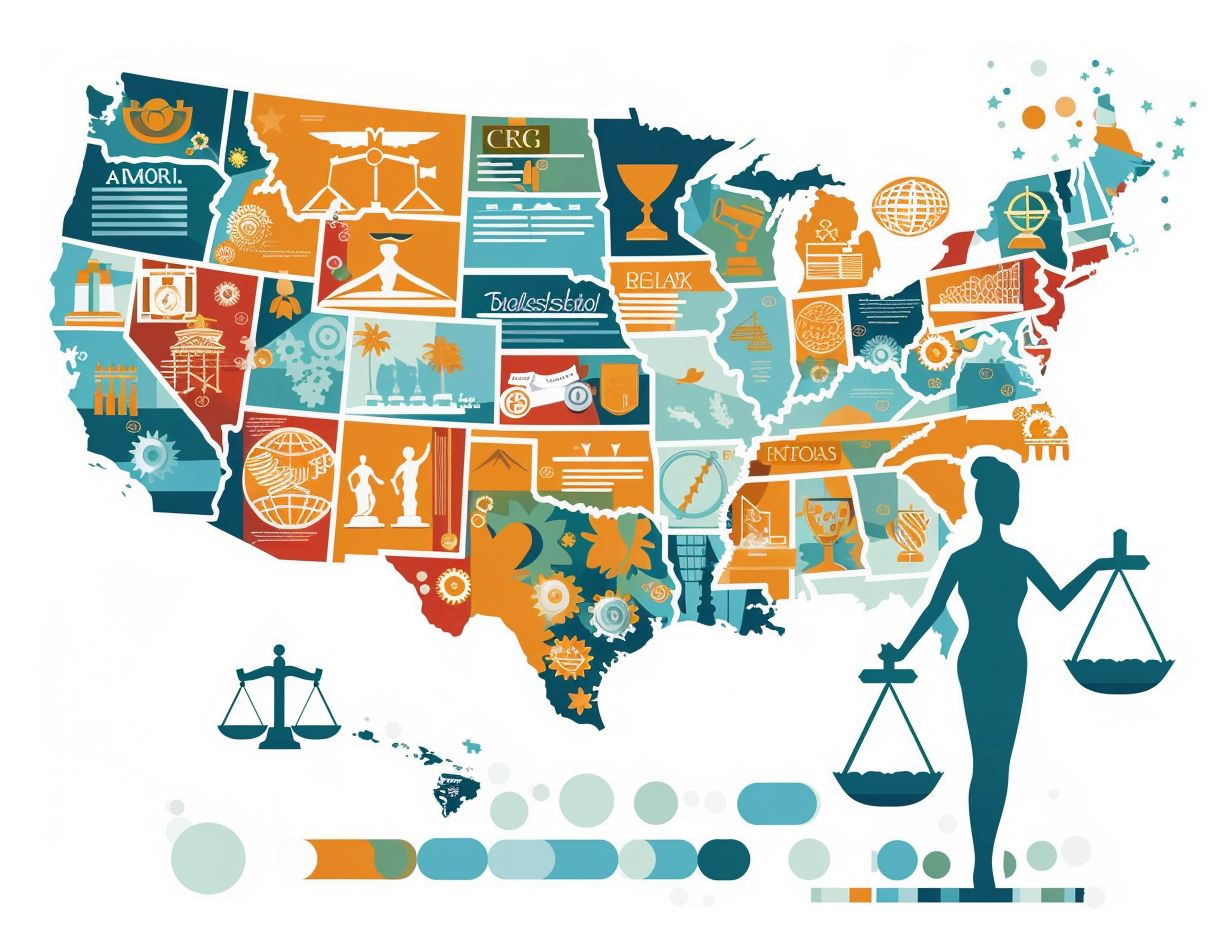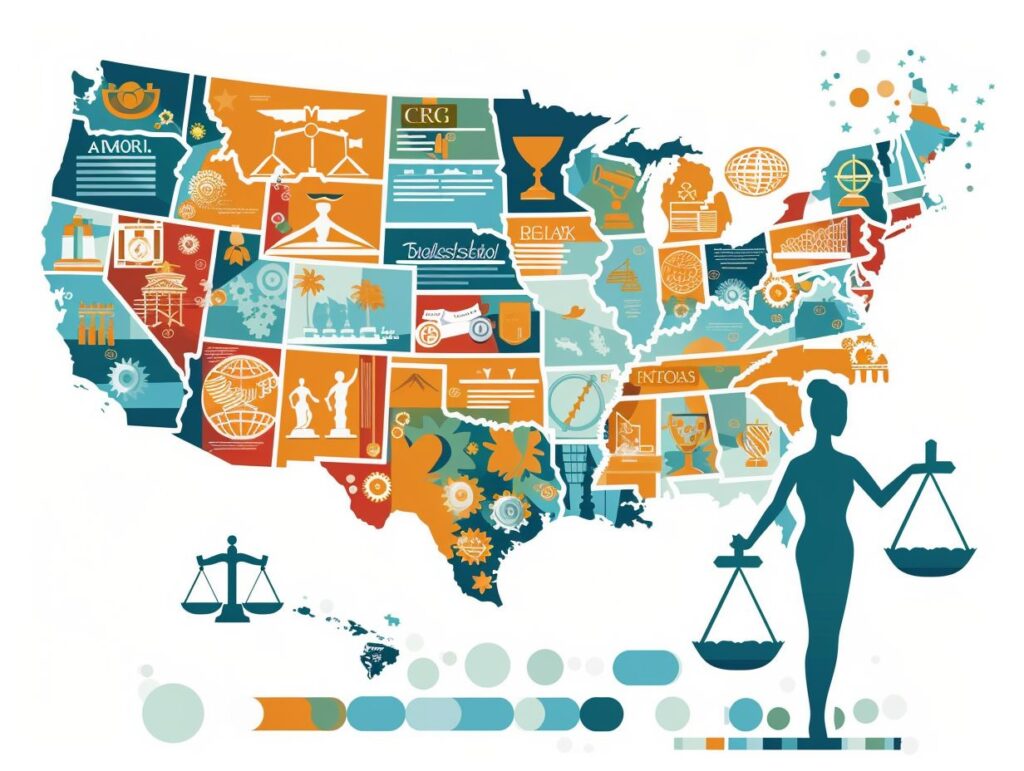Personal injuries can have a significant impact on your life, both physically and financially. From car accidents to slip and fall incidents, there are various types of personal injuries that can occur.
In Florida, there are specific laws that govern personal injury cases, including statutes of limitations and comparative negligence. If you find yourself in a situation where you have suffered a personal injury, it is essential to take the necessary steps, such as seeking medical attention and consulting with a personal injury lawyer.
Understanding the types of damages you may be entitled to, such as economic, non-economic, and punitive damages, is crucial in navigating the legal process. Let’s explore what personal injury entails and how to navigate the legal landscape in Florida.

What are the Laws Surrounding Personal Injuries in Florida?
Florida laws include various regulations related to personal injuries. These encompass the statute of limitations, comparative negligence rules, and the state’s no-fault insurance system. These factors play crucial roles in the handling and resolution of personal injury cases.
1. Statute of Limitations
The statute of limitations in Florida establishes the timeframe for filing a personal injury court case, following specific laws to ensure timely adjudication.
This legal mechanism aims to prevent cases from being brought to court after a certain period has elapsed, recognizing that evidence may deteriorate and memories may fade over time. In Florida, the statute of limitations for personal injury cases typically varies from two to four years, depending on the nature of the incident.
Understanding and adhering to these time constraints is essential for both plaintiffs and defendants. Failure to file within the specified timeframe can lead to the dismissal of a case, irrespective of its merits, underscoring the significance of prompt legal action.
2. Comparative Negligence
In Florida, comparative negligence operates under a negligence rule that allows a court case to attribute fault proportionally, affecting the amount of damages a victim can recover. This means that if a person is found to be partially at fault for their injury, their compensation will be reduced by the percentage of fault assigned to them.
For example, if a court determines that someone was 20% at fault for their own injuries in a personal injury case, their damages award would be decreased by 20%. Understanding the implications of comparative negligence is crucial in personal injury cases, as it can significantly impact the final outcome and the financial compensation received by the injured party.
3. No-Fault Insurance
In Florida, the no-fault insurance system mandates that car accident victims must seek compensation from their own insurance policies, regardless of fault.
This system is designed to streamline the claims process and ensure that injured parties receive compensation promptly without the need for protracted legal disputes to establish fault. In a no-fault state like Florida, each driver’s insurance policy typically includes Personal Injury Protection (PIP) coverage, which covers medical expenses and lost wages up to a specified limit.
There are limitations on when a victim can pursue additional compensation beyond their own policy, such as in cases of severe injuries or meeting specific threshold requirements set by the state.
What Steps Should You Take After Suffering a Personal Injury in Florida?
Following a personal injury in Florida, it is important to promptly seek medical attention, report the incident to the appropriate authorities, collect necessary evidence, and seek advice from a personal injury attorney to safeguard your rights and secure fair compensation.
1. Seek Medical Attention
It is important to seek immediate medical attention after experiencing injuries. This is not only necessary to address serious injury and impaired bodily function but also to document the extent of harm for legal purposes.
Receiving timely medical care can help prevent complications and ensure proper healing. Injuries such as concussions, fractures, severe burns, and deep lacerations often require immediate attention to avoid long-term consequences.
Documenting injuries right after an accident can provide essential evidence in personal injury cases. This evidence can help prove liability and secure compensation. Medical records detailing the diagnosis, treatment, and prognosis are crucial in establishing the connection between the incident and the resulting harm. This ensures that victims receive the justice and support they deserve.
2. Report the Incident
It is important to report the incident to relevant authorities as it establishes a formal record that can be utilized in a legal context, particularly if the case progresses to court.
Official reports are crucial in accurately documenting the incident details, ensuring that all information is recorded formally and objectively. These reports serve as important evidence in legal proceedings, aiding in establishing a clear timeline of events and offering a factual basis for any potential court case.
By promptly and accurately reporting the incident, individuals assist in maintaining the integrity of the legal system and enabling a comprehensive investigation to ensure justice is served.
3. Gather Evidence
Collecting evidence is a crucial step in substantiating a personal injury claim as it helps to establish the facts of the case and the extent of the losses incurred.
Photographs are important in documenting the accident scene and any visible injuries sustained. Witness statements provide firsthand accounts of the incident that can support your version of events. Medical records are essential in demonstrating the extent and nature of your injuries, providing concrete evidence for the court case.
Gathering these types of evidence strengthens your claim, increases credibility, and can significantly influence the outcome of your personal injury case.
4. Consult with a Personal Injury Lawyer
Seeking guidance from a personal injury lawyer is important to navigate the complexities of legal claims and ensure professional and effective handling of one’s case.
A personal injury lawyer can offer assistance in different aspects of the case, including investigating the injury’s circumstances and negotiating with insurance companies.
They provide comprehensive legal support and have the expertise to assess the damages and medical expenses to help secure fair compensation. Having a skilled attorney can significantly enhance the likelihood of optimizing claims and attaining the deserved justice and financial recovery.
What Types of Damages Can You Receive in a Personal Injury Case in Florida?
In a personal injury case in Florida, individuals may be entitled to different types of damages, including economic, non-economic, and punitive damages, as outlined by Florida statutes to ensure appropriate compensation for their losses.
1. Economic Damages
Economic damages are intended to cover quantifiable financial losses, such as medical expenses, lost wages, and property damage, ensuring that individuals are reimbursed for their out-of-pocket costs. These losses are carefully calculated in personal injury claims to guarantee that individuals receive appropriate compensation for their financial difficulties.
Medical expenses encompass all bills related to the injury, from initial emergency care to ongoing treatments. Lost wages are typically determined based on the victim’s salary and the time missed from work due to the injury. Property damage includes the expenses associated with repairing or replacing any damaged belongings from the incident.
The objective of quantifying these economic damages is to offer fair and just compensation to those who have suffered due to another party’s negligence.
2. Non-Economic Damages
Non-economic damages compensate for intangible losses like pain and suffering, emotional distress, and loss of enjoyment of life, acknowledging the impact of physical injury on a victim’s overall well-being.
These damages extend beyond quantifiable financial losses and seek to address the psychological and emotional burden that a personal injury can bring. Assessing non-economic damages involves considering factors such as the severity of the physical injury, the level of emotional distress experienced, and the effect on an individual’s quality of life.
Courts may evaluate the duration of emotional suffering, psychological impacts, and how the injury has hindered participation in once-pleasurable activities. Determining a suitable compensation for non-economic damages requires a nuanced approach that considers the unique circumstances of each case.
3. Punitive Damages
Punitive damages are granted in situations where the defendant’s negligent actions are notably severe, serving as a form of punishment and discouraging similar behavior in the future. These damages exceed mere compensation for the actual harm done and seek to make the defendant answer for their actions through financial penalties.
The standards for granting punitive damages differ depending on the jurisdiction, with typical considerations including the seriousness of the misconduct, the intent behind it, and the defendant’s financial means. In personal injury lawsuits, punitive damages are frequently pursued alongside compensatory damages to ensure accountability for the liable party’s behavior.
Frequently Asked Questions
What are personal injury laws in Florida?
Personal injury laws in Florida refer to the set of legal rules and regulations that determine the rights and responsibilities of individuals who have been injured due to the negligence or wrongful actions of others. These laws cover a wide range of accidents and injuries, including car accidents, slip and falls, medical malpractice, and more.
What is the statute of limitations for personal injury cases in Florida?
In Florida, the statute of limitations for most personal injury cases is four years from the date of the injury. However, this time frame can vary depending on the type of case and the circumstances surrounding it. It is important to consult with a personal injury attorney to determine the statute of limitations for your specific case.
How is fault determined in a personal injury case in Florida?
In Florida, the principle of comparative negligence is used to determine fault in personal injury cases. This means that the amount of compensation a person can receive will be reduced by their percentage of fault for the accident. For example, if a person is found to be 20% at fault for the accident, their compensation will be reduced by 20%.
What types of damages can be recovered in a personal injury case in Florida?
In Florida, victims of personal injury can seek compensation for both economic and non-economic damages. Economic damages include medical expenses, lost wages, and property damage. Non-economic damages include pain and suffering, emotional distress, and loss of enjoyment of life.
Do I need to hire a personal injury attorney for my case in Florida?
While it is not required by law to hire a personal injury attorney in Florida, it is highly recommended. Personal injury cases can be complex and insurance companies often try to offer low settlements to victims. A skilled attorney can help you navigate the legal process and ensure that you receive the full and fair compensation you deserve.
How long does a personal injury case take to resolve in Florida?
The length of time it takes to resolve a personal injury case in Florida can vary depending on the circumstances of the case. Some cases may be settled within a few months, while others may take a year or more. It is important to work with a dedicated attorney who can guide you through the process and work towards a timely resolution of your case.

























Rate this article:
No Comments yet!